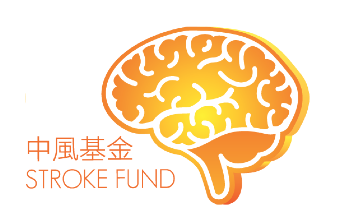Prevention of Primary and Recurrent Stroke
Stroke is one of the major causes to death and adult disability and its impact on stroke survivors and its family can be grave. That’s why the best and most effective cure to stroke is prevention.
Once a clot is formed inside the blood vessel, it is very likely that the clots will gather inside the blood vessels in the brain and result in a blockage or ischemic stroke. You can try the following methods to prevent an ischemic stroke:
1. Medications that can prevent stroke or TIA
Blood thinning medication can be classified into anticoagulant and antiplatelet drugs. Both medications are responsible for preventing the formation of blood clots in the blood vessels. If you have one or more risk factors that can lead to a stroke, your doctor will prescribe blood thinning medications according to your condition to minimize the chances of having an ischemic stroke.
Antiplatelet drugs :
Antiplatelet Drugs: Antiplatelet therapy is used on a majority of the survivors who have suffered from an ischemic stroke to reduce the likelihood of a recurrent stroke. Antiplatelet drugs can decrease platelet aggregation and inhibit thrombus formation. Aspirin, Clopidogrel and a combination of Aspirin and Dipyridamole are commonly used antiplatelet drugs as stroke treatments.
Anticoagulant drugs :
Warfarin :
For over 50 years, Warfarin has been traditionally used to treat stroke that is instigated by atrial fibrillation. Warfarin is an effective anticoagulant drug if used with precise dosage and requires close monitoring to bring out its effects. Warfarin is mainly prescribed to patients with heart disease to prevent blood clot formation in the heart or blood vessels and thus, can prevent stroke caused by atrial fibrillation. Clinical researches have proved that warfarin is more effective in preventing stroke instigated by atrial fibrillation than Aspirin. Warfarin can effectively reduce stroke by more than 60%, while Aspirin can only reduce stroke by less than 20%. However, the drug’s side effects interact with some foods and other prescribed medicine yielding in an increased risk of dangerous bleeding. People who are prescribed with warfarin must have regular blood tests to identify and determine the correct dosage of the medicine dosage. Proper diet must be accompanied with the administration of warfarin.
Dabigatran etexilate :
Dabigatran etexilate is a new class of anticoagulant drug used in stroke prevention in patients with atrial fibrillation. Not only is it more effective than traditional blood thinning drugs including Aspirin, Clopidogrel and Warfarin, it also does not have troublesome problems of interactions with a wide variety of foods and other medications. Thus, patients taking this new class of anti-coagulants do not require regular blood tests and diet restriction. Since the patient does not require constant blood tests to closely monitor the intensity of anti-coagulation and frequent adjustment of the medication dosage, the inconvenience caused by the medication can be minimized and bring a better quality of life to its patients and their family members.
2. Quit smoking immediately, exercise regularly and learn to relax.
3. Control your blood pressure and diabetes
- Non-medicated intervention: Avoid intaking an excessive amount of sodium/salt in your diet. Stick with a diet that is “3 lows and 1 high,” which means the diet should be low in sugar, sodium and fat but high in fibre.
- Medicated Intervention: follow the instructions prescribed by the doctor.
4. Lower your blood cholesterol
This can be done by exercising and eating proper diet. Following the medication prescribed by a doctor, when necessary.
5. Surgery can be an option for those suffering from severe carotid atherosclerosis with critical narrowing
The surgery involves procedures that either removes the plaque in the neck arteries or implant stents to dilate and strengthen the narrowed neck arteries. This can enhance blood flow and minimize the chances of a stroke.
